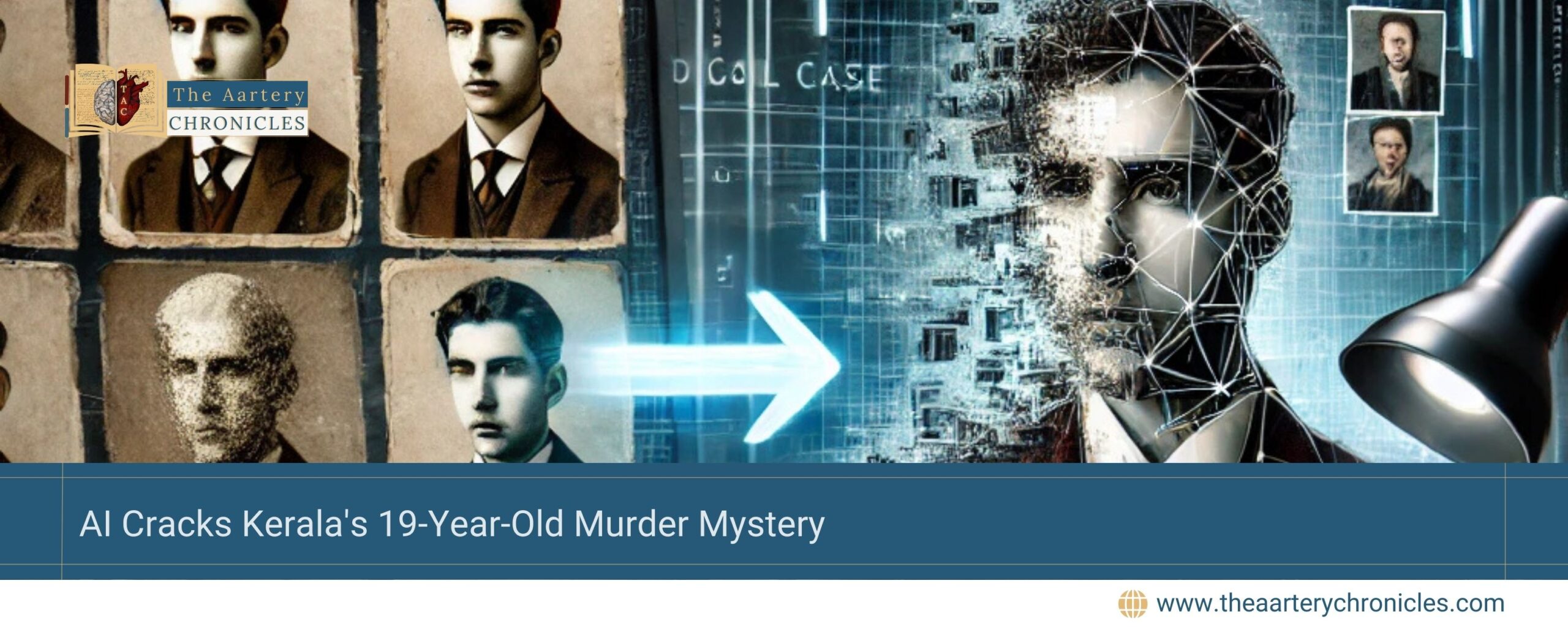

AI Cracks Kerala's 19-Year-Old Murder Mystery
Kerala Police successfully solved a 19-year-old cold case involving the brutal murder of a young mother, Ranjini, and her newborn twins. The case, which had remained unsolved since 2006, was cracked using advanced artificial intelligence (AI) technology.
The Tragic Incident in 2006
On February 10, 2006, Santamma arrived home from the Panchayat office in Anchal, a town in Kerala’s Kollam district, to find a horrific scene. Ranjini, along with her 17-day-old twin daughters, was found in a pool of blood, their throats brutally cut.
The police launched an investigation and identified two suspects, Divil Kumar and Rajesh, both of whom were army personnel stationed in Pathankot at the time. However, the accused managed to evade capture, and the case eventually turned cold.
Reviving the Case with AI Technology
In 2023, Kerala Police’s Technical Intelligence Wing decided to re-examine cold cases using modern technology. AI was employed to age-old photographs of the suspects, generating images of how they might appear 19 years later.
These digitally enhanced images were then compared with photos found on social media. This led to a breakthrough when a wedding photo on Facebook had a 90% resemblance to one of the suspects.
Tracing the Accused
The wedding photo belonged to a man from Puducherry, identified as “Praveen Kumar.” Investigators determined this was Rajesh, one of the suspects. The lead also helped them locate Divil Kumar, who had assumed a new identity, “Vishnu.”
On January 4, 2025, nearly two decades after the crime, the Central Bureau of Investigation (CBI) arrested both men in Puducherry. The accused had started new lives as interior designers under their assumed identities.
The Motive Behind the Crime
Police investigations uncovered that Ranjini and Divil, both from the same village, were in a relationship. However, when Ranjini got pregnant, Divil pulled away and moved to Pathankot. Despite this, Ranjini decided to keep the baby and gave birth to twin girls in January 2006.
Afterwards, Ranjini went to the State Women’s Commission to force Divil to take a DNA test to prove he was the father. At the same time, Rajesh, a former coworker of Divil, befriended Ranjini under a fake name, “Anil Kumar,” and offered to help her.
In a twisted turn, Divil and Rajesh teamed up to murder Ranjini and her children, hoping to escape any legal or social consequences.
The Day of the Crime
According to investigators, Rajesh manipulated Ranjini’s mother, Santamma, into leaving the house for official work at the Panchayat office. In her absence, he carried out the murders on Divil’s orders.
A motorcycle registration number found at the crime scene initially led the police to a military camp in Pathankot. However, the accused had already escaped.
A Remarkable Use of AI in Justice
This case underscores the potential of AI in solving long-standing mysteries. Kerala ADGP Manoj Abraham commended his team for employing advanced technology to bring the perpetrators to justice. By ageing old photographs and using social media, the police were able to track down and apprehend the suspects, proving that justice delayed is not always justice denied.
Source: Inputs from various media Sources
I’m a pharmacist with a strong background in health sciences. I hold a BSc from Delhi University and a pharmacy degree from PDM University. I write articles and daily health news while interviewing doctors to bring you the latest insights. In my free time, you’ll find me at the gym or lost in a sci-fi novel.









